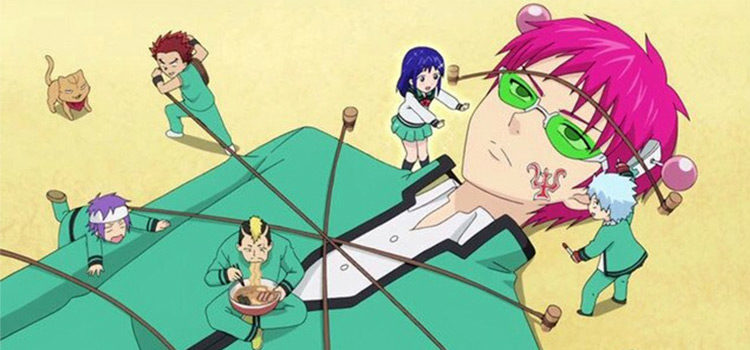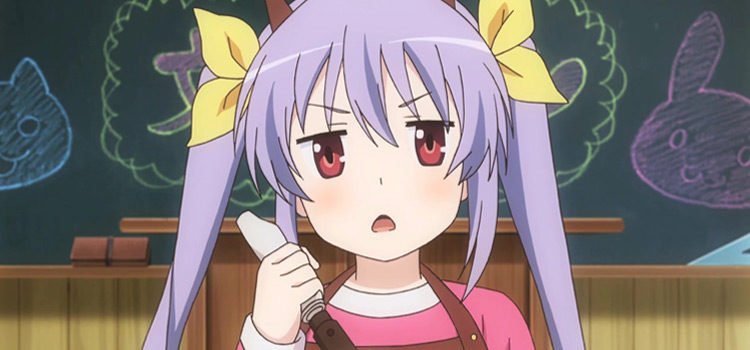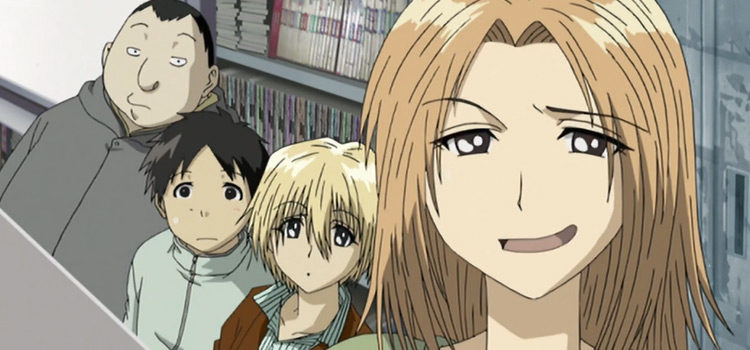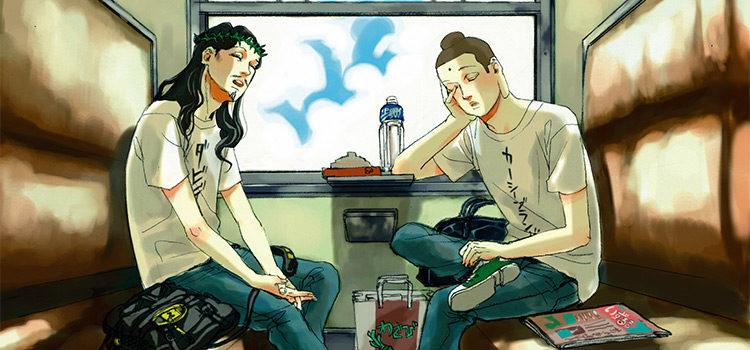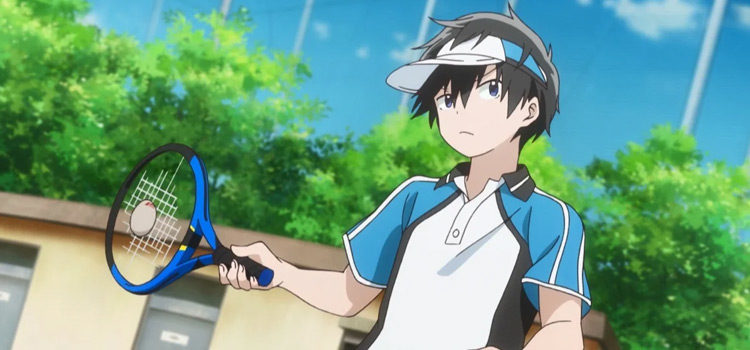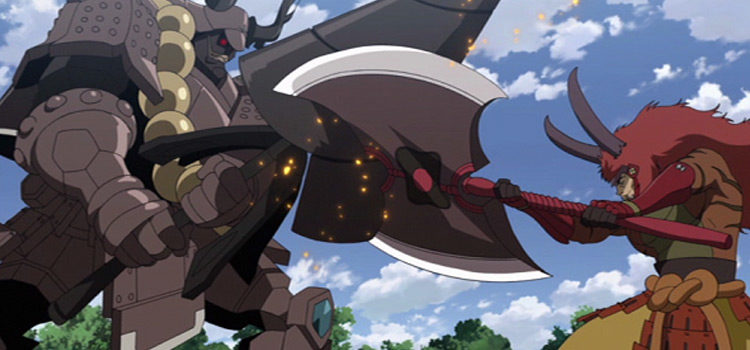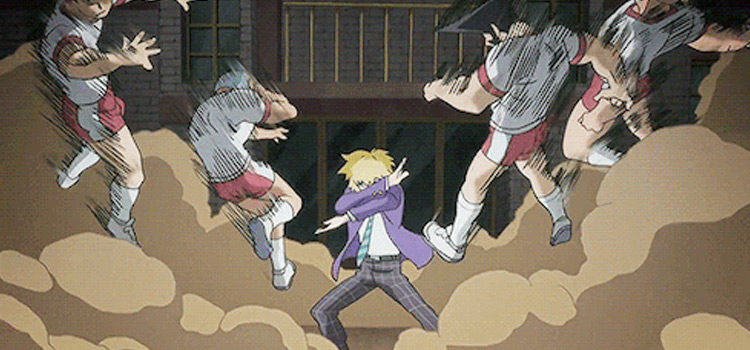50 Best Slice of Life Anime Series & Movies (Ranked)
This post may contain affiliate links. If you buy something we may get a small commission at no extra cost to you. (Learn more).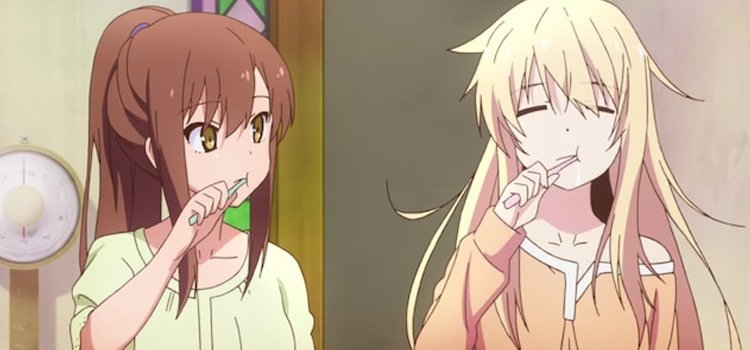
You know what’s my favorite genre in anime? Well it’s an easy guess: lice of life — the purest and most life-affirming genre there is.
If you asked me the same thing 10 years ago, I would’ve said I preferred “edgy, brutal, and deep” shows. Or just the usual shonen titles.
But things change.
I’ve grown up, my taste has too, and good anime doesn’t always have to include big fights and long arcs.
Anime where “literally nothing happens” isn’t devoid of value. It can actually be extremely compelling! You just have to know where to look.
With this in mind, let me show you my picks for the best slice of life anime of all time.
50. Honobono Log
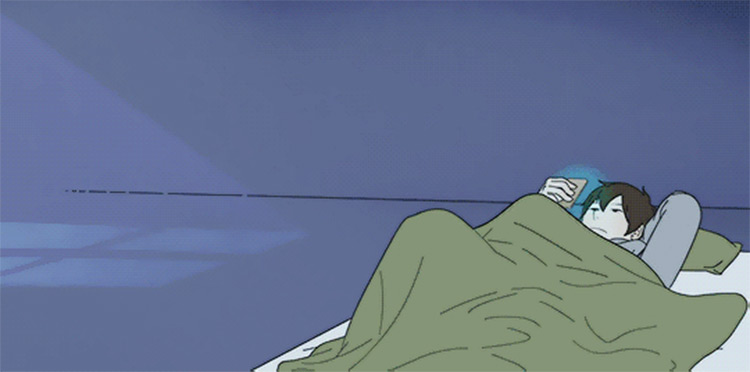
Starting off the list is Honobono Log, a short series that doesn’t look like typical anime.
It’s more like the typical cutesy Korean illustrations you find on social media.
So what do I like about this?
For one, it’s short and sweet.
You can finish all 10 episodes in 20 minutes — that’s how short it is.
Yet Honobono Log presents all the tender yet very much ordinary moments of people in love, reminding us that it’s not all about grand romantic gestures.
49. Demi-chan wa Kataritai (Interviews with Monster Girls)
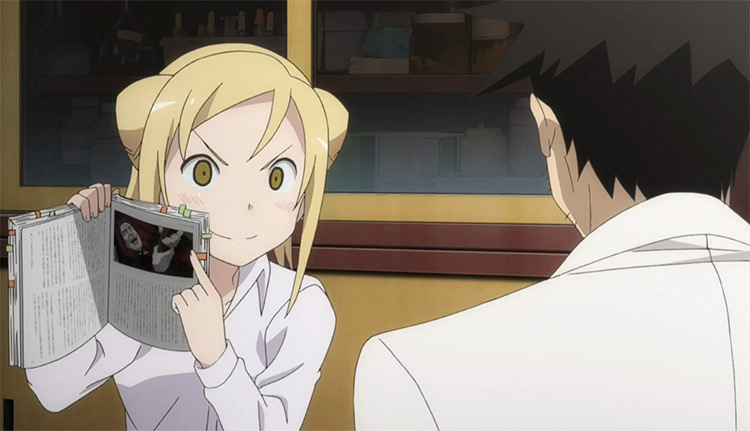
Should all monsters go about eating humans and ravaging cities?
In Demi-chan wa Kataritai we have half-human, half-monster entities interacting with perfectly ordinary humans in school.
It’s an odd world, to say the least.
What I love about this anime is its theme of tolerance and acceptance, that differences in physical appearance are just that — we all still share the same emotions that make us human.
As the MC Tetsuo Takahashi gets to know more about a bratty vampire or an introverted snow woman, you can learn a thing or two about not judging a book by its cover.
48. Isekai Shokudō (Restaurant to Another World)
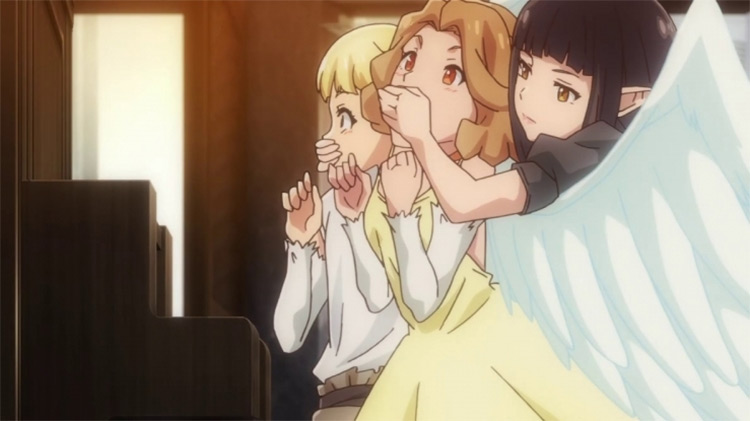
Are you tired of all the seemingly endless barrage of generic isekai entries? I don’t blame you.
Ever since Sword Art Online took the world by storm, studios have been on the lookout for the next big hit.
In contrast to the usual action-packed isekai, Isekai Shokudo is about the joys of eating and discovering gastronomic pleasures.
And you know why it works?
It’s because the diners of this otherwise typical Japanese restaurant are all from the fantasy world: elves, faeries, dragons, leonine warriors, sorcerers, knights, biped reptiles.
It makes you appreciate the meals and snacks you have, no matter how cheap or common they are.
47. Gochuumon wa Usagi Desu ka? (Is the Order a Rabbit?)
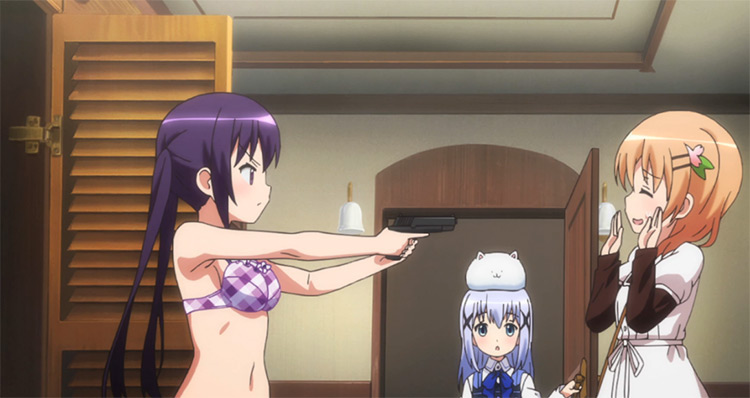
Often referred to as GochiUsa, this is the first CGDCT (Cute Girls Doing Cute Things) entry on my list.
It doesn’t rewrite the subgenre. But the main characters are effectively endearing.
Plus, GochiUsa isn’t concentrated in school.
Five of the young girls are waitresses, so they also have “adventures” in the cafe and around town.
Almost everything is normal in their world, except for the small talking rabbit of Chino Kafuu.
If anything, GochiUsa would be better off without that one fanservice episode.
46. Kono Bijutsubu ni wa Mondai ga Aru! (This Art Club Has a Problem!)
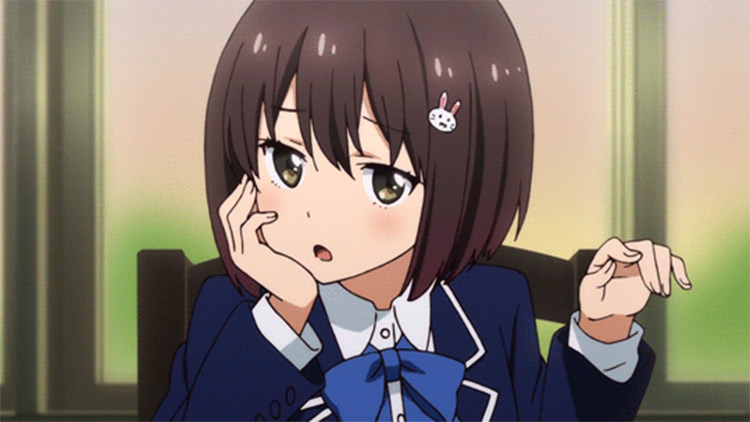
I didn’t expect to like Konobi as much as I did.
When I saw the teaser before its 2016 release, I found the art plain — and it was throughout the series.
But like any good SoL title, Konobi had a cast that meshed well together, with Collette and Yumeko being surprise favorites.
You may get tired of Ari getting flustered around Yuusuke, and this is more energetic and comedic than relaxing.
But some jokes (like Yuuseke’s preference for 2D waifus) always make me chuckle.
45. Gabriel DropOut
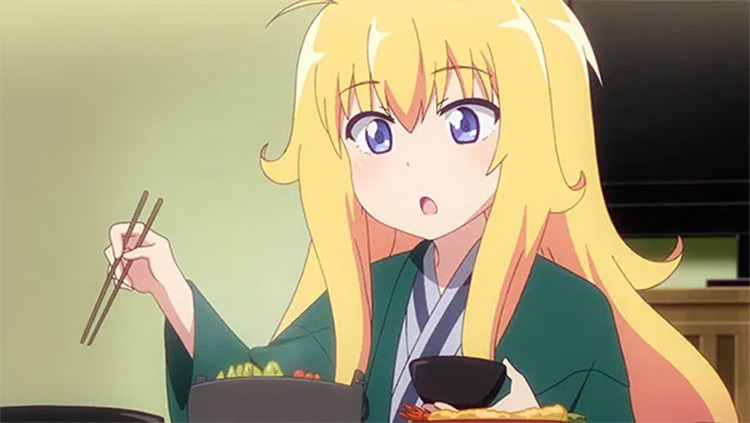
Here’s the thing: I love online RPGs.
So when Gabriel DropOut came out and featured an angel who was supposed to help humankind but ends up playing video games, I knew I was in for a good ride.
The fallen angel Gabriel was the hook.
But what kept me watching was Satanichia, an adorable demon who’s often put in bad situations.
There’s nothing apocalyptic about Gabriel DropOut, but there’s something appealing with seeing cute demons and angels in school, acting like the complete opposite of what they were born to be.
44. Amaama to Inazuma (Sweetness & Lightning)
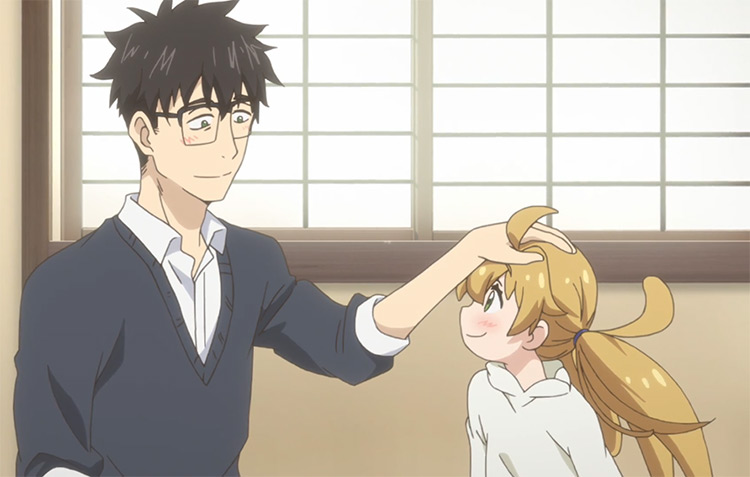
Amaama to Inazuma isn’t about cute schoolgirls.
Instead it’s about a widowed father wishing to be a good father to his kid — and that’s where a schoolgirl and cooking come into play.
Kouhei doesn’t know how to cook. But he wants his little girl Tsumugi to grow up healthy.
This leads him to his student, Kotori Iida, who has a family restaurant. Kotori herself isn’t good at cooking, but she has the resources to help Kouhei.
This isn’t a cooking show (although there are many).
It’s a show that uses cooking to depict the importance of home-cooked meals, social bonding, and of being part of a family. Even if you aren’t all biologically related.
43. Saint☆Onii-san (Saint☆Young Men)
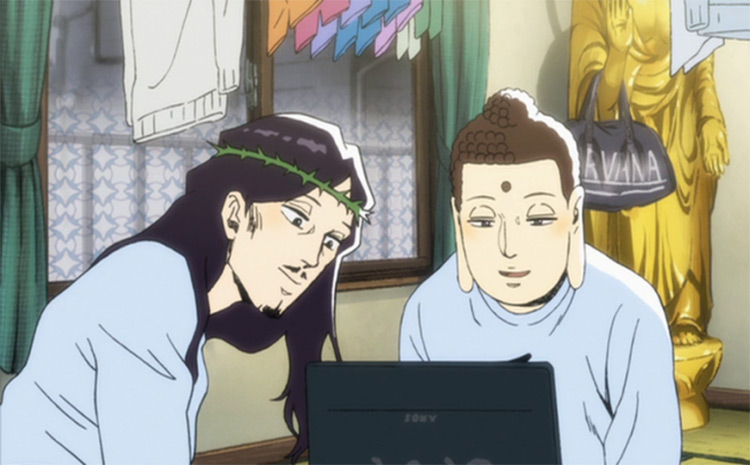
Can two people of different religions live together in peace?
What if those two people were the key figures themselves?
In Saint Onii-san, we have no less than Jesus Christ and Gautama Buddha living together in Tokyo, with no apocalyptic event surrounding them.
They just go to saunas and check out clothing stores.
It’s an odd series, but simply putting two iconic characters in a mundane setting makes it stand out. Definitely check out the nearly 90-minute movie if you have the time.
42. Mangaka-san to Assistant-san to The Animation
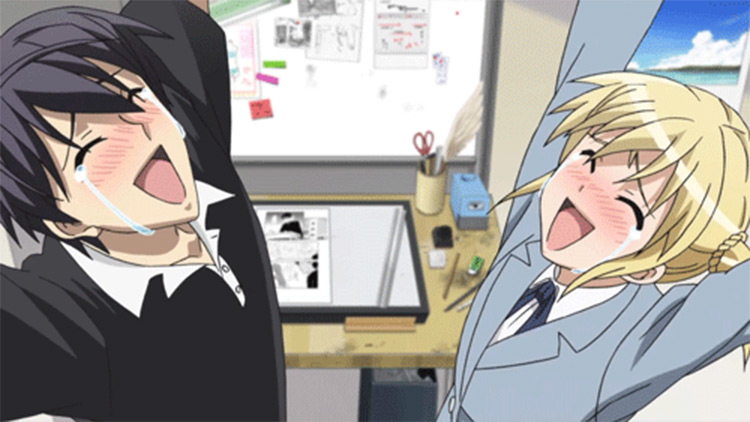
Mangaka-san to Assistant-san to is, well, from a manga series.
The source material is relatively popular, which is probably due in part to its ecchi element.
The manga artist Yuuki Aito loves drawing panties and is surrounded by women.
Yes, this is a harem show. But hear me out: It’s entertaining.
And it helps a lot that it’s just 14 minutes long per episode.
Mangaka-san to Assistant-san to is average in terms of technical aspects.
But like Prison School, it goes all out in its comedic pervertedness, producing some of the most embarrassing anime scenes of all time.
41. Kiniro Mosaic (KINMOZA!)
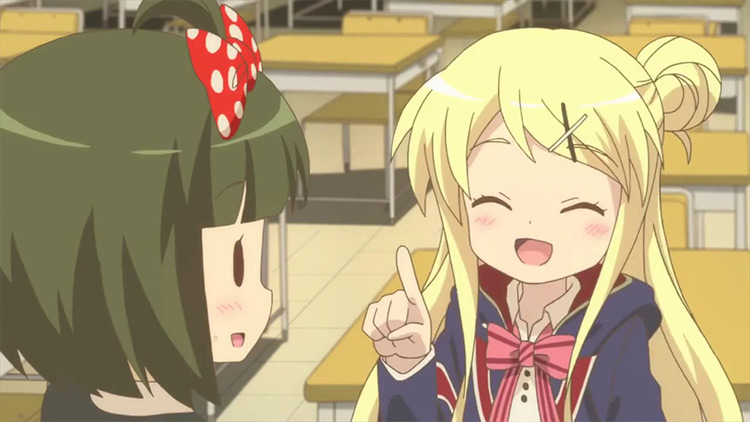
If you’re a regular on Twitch or just familiar with internet culture, you’ve likely heard people say “ayaya” repeatedly.
That meme’s from Kiniro Mosaic’s Karen Kujou, who’s also the source of the “desu” song.
Yet Kiniro Mosaic is more than cutesy memes.
It’s an undoubtedly sweet CGDCT series featuring girls who know a thing or two about British and Japanese culture.
Don’t let Karen steal the show for you.
Characters like Oomiya Shinobu and Inokuma Youko have shining moments as well.
Also if you liked season 1 then you’ll be pleased to know season 2 manages to get even better!
40. Tonari no Kaibutsu-kun (My Little Monster)
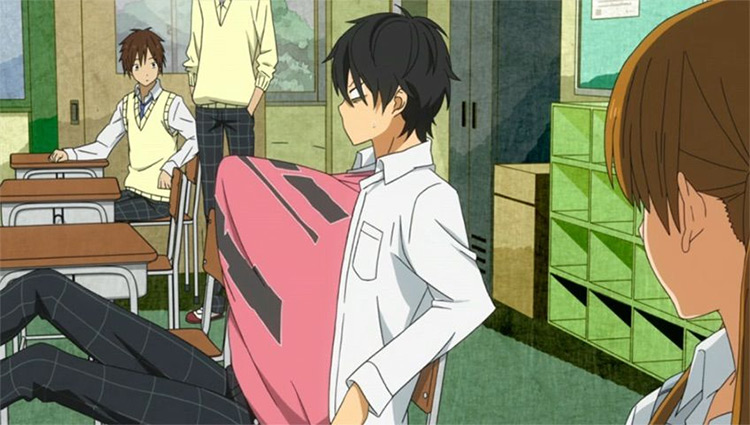
I love this show.
I wish I could place this higher, but SoL is a difficult genre for me to organize because I have so many favorites.
If I could have one anime continue until it has adapted the entire source material, I’d choose this in a heartbeat.
I just think the character dynamics here are amazing — and I love the fact that Haru has a chicken named Nagoya.
Simply put, Tonari no Kaibutsu-kun is school and dating life done right.
Give the soundtrack a listen too. It’s one of the best I’ve heard from anime in the past decade.
39. Azumanga Daioh
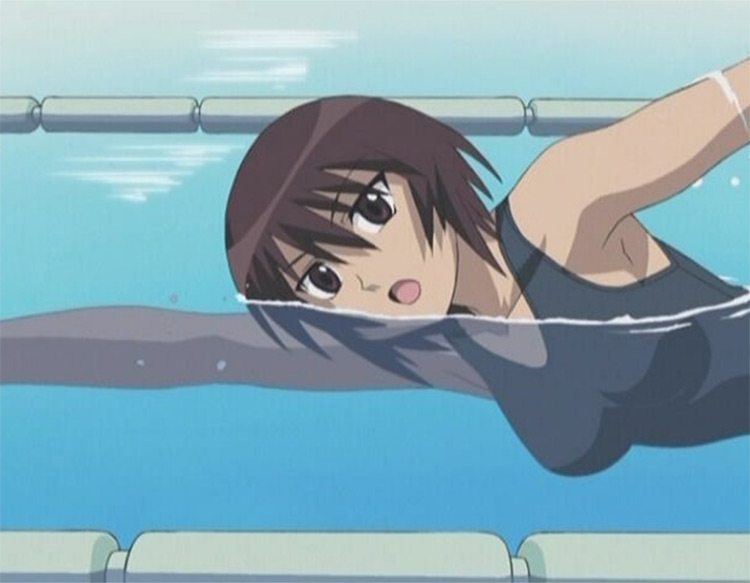
There are a few anime series that are regarded as pioneers in their respective genres.
The 2002 series Azumanga Daioh is one of the first-ever successful slice-of-life (and CGDCT) anime out there.
Perhaps the key factor to its achievements is that Azumanga Daioh had a complete adaptation.
In other words, everything in the manga is in the anime. Covering everything from freshman year to graduation.
Later on in my list, you’ll be seeing more shows that this anime had influenced.
Plus did you know that the waifu meme originated here?
38. Lucky Star
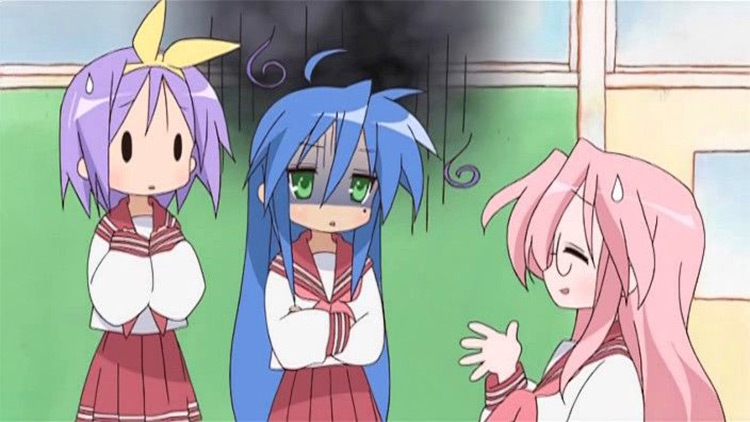
Here’s another classic SoL and CGDCT anime, with one of the most infectious opening themes ever.
The song alone is great, but it even has an entire dance sequence otakus couldn’t help but cover.
What do I love the most about Lucky Star?
Everything is delightful. But Konata Izumi absolutely steals the show every time she’s in a scene — and it helps that she’s also an avid otaku and video gamer like me.
The humor here isn’t for everyone, and some may feel that scenes drag out, but Lucky Star will always be one of the early shows that catapulted Kyoto Animation into fame in the industry.
37. Yuru Yuri (YuruYuri: Happy Go Lily)
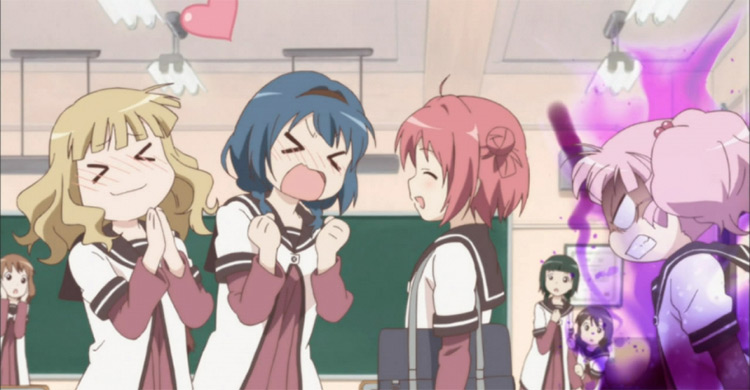
Continuing the CGDCT streak we have Yuru Yuri, a three-season title from Doga Kobo.
Srguably known mostly for its talent in creating CGDCT anime.
Also the anime features lesbians, as the title suggests.
But don’t think that this focuses on serious or erotic scenes.
Instead, Yuru Yuri is still a show where girls hang out in their club room and at school in general.
The jokes themselves are funny, but the comedic timing and the delivery all add to the hilarity.
If you also haven’t noticed, anime forums often have reaction faces of two Yuru Yuri characters: Kyouko Toshinou and Akari Akaza.
36. Udon no Kuni no Kiniro Kemari (Poco’s Udon World)
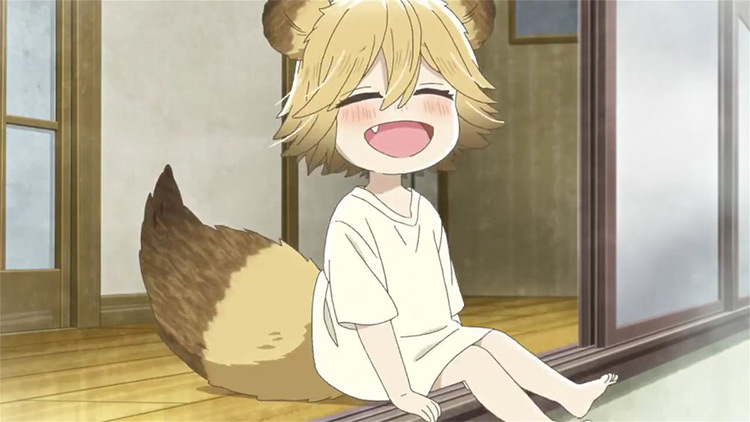
Sweetness & Lightning and Poco’s Udon World often get compared to each other because they feature a guy who takes care of a child.
But here, the kid can transform into a tanuki or the Japanese raccoon dog.
If you often get nostalgic or think back of your childhood, give this a try.
As much as Poko is a cute tanuki boy, the real value comes from Souta.
As he goes back to his hometown, he begins to see his relationship with his father and the townspeople in a whole different light.
Poco’s Udon World is a peaceful show that teaches viewers to appreciate what they have and once had.
35. Genshiken
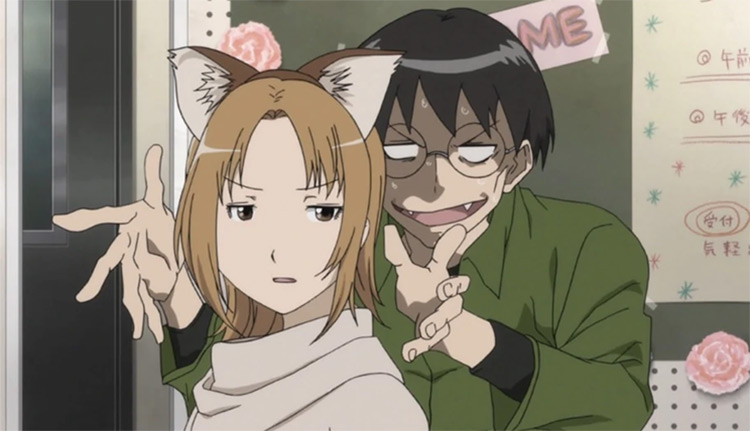
If you think club members fighting over the appeal of Boys’ Love (BL) anime is entertainment, then I’ve got wonderful news: Genshiken is all about teenagers with a great passion for all things otaku, including BL.
It’s been so long since I’ve seen the first season.
But I know how memorable the characters are.
It feels a bit slow at first, but it feels realistic: New otaku club members being awkward to each other isn’t hard to imagine.
Genshiken has a few OVAs and three seasons, and while the characters age and move on with their lives, the same otaku-specific hilarity has always been there.
34. Danna ga Nani wo Itteiru ka Wakaranai Ken (I Can’t Understand What My Husband Is Saying)
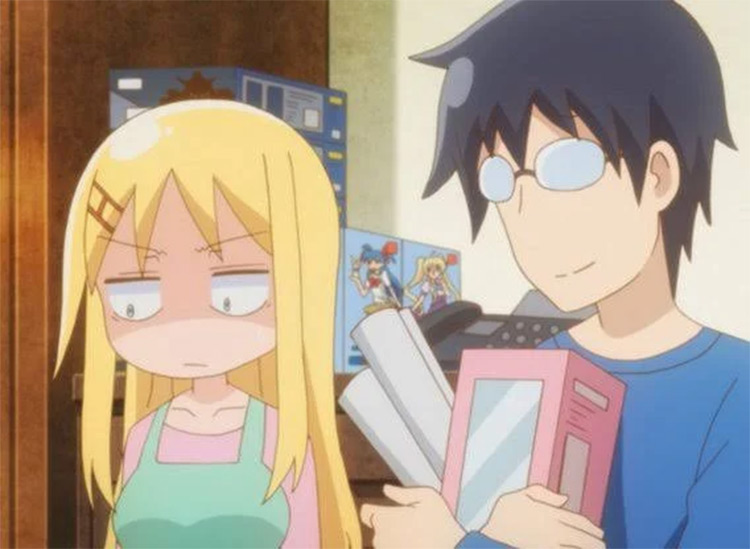
This is arguably my all-time favorite short anime.
With each episode being just three minutes long, you can watch both 13-episode seasons in one sitting — and yet it manages to be more rewarding than far longer anime.
Danna ga Nani wo Itteiru ka Wakaranai Ken centers around the married life of Kaoru and her otaku husband Hajime.
The anime is filled with tropes (many of them being from Neon Genesis Evangelion).
Aside from its relatability, the anime is a standout for how it shifts from absurd hilarity to moments of introspection when either main character realizes how lucky they are to have found each other.
33. Eve no Jikan (Time of Eve)
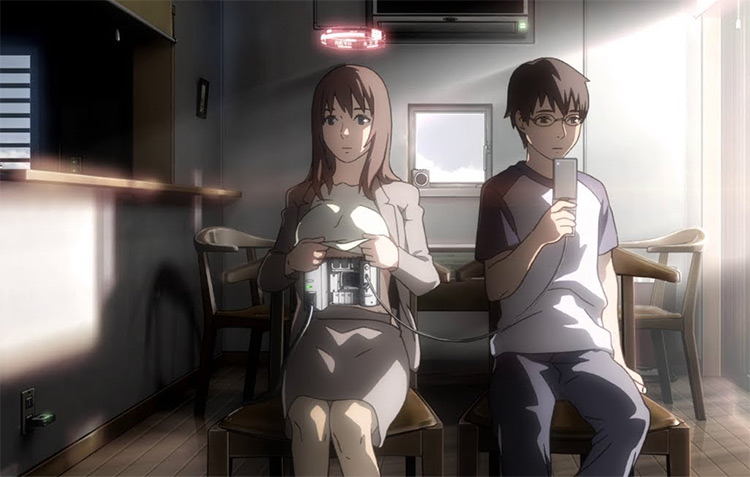
You can watch the award-winning Time of Eve in six episodes, or just check out the compilation movie.
Regardless, this is a distinct SoL anime for many reasons. Two being its strong sci-fi element and futuristic setting.
Eve no Jikan is an exploration of the Three Laws of Robotics as stated by Isaac Asimov.
Androids are now common, but how should humans treat them?
Are they mere machines to order around or should they be seen as more than that?
If there’s anything to pick up from this, it’s the stellar writing.
The tension and emotion brought out of words and conversations are outstanding.
32. Mitsuboshi Colors
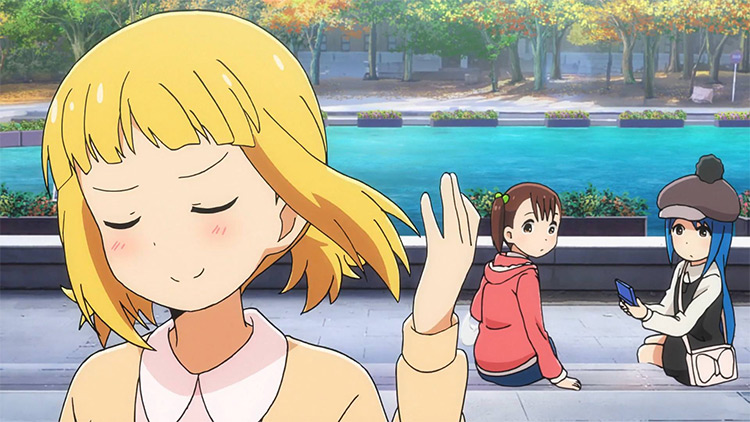
I read the manga way before the adaptation was announced, and I’m happy to say that the anime did it justice.
Silver Link has always been excellent with backgrounds — and they didn’t disappoint here.
Now Mitsuboshi Colors is silly, which is expected of a show about three little girls with a secret base.
But it’s more childlike and less childish.
They just solve little mysteries prepared by the old Daigorou.
Nothing really happens, but it’s cute to see how they’re always thinking of the next fun thing to do.
One episode even has them pondering about the obliteration of humanity for the wrong reasons.
31. Flying Witch
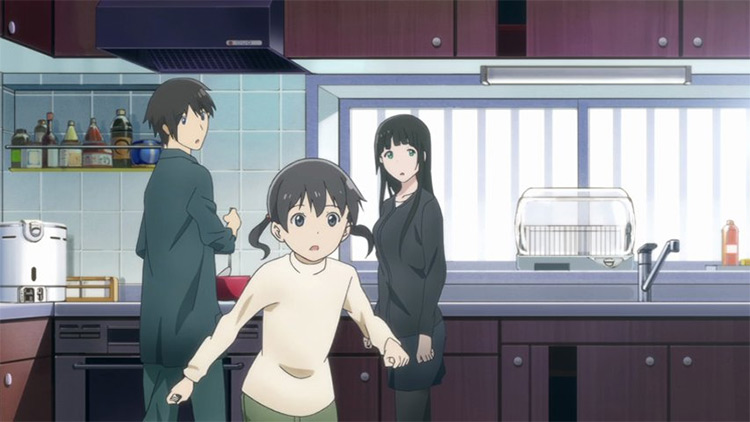
Warning: Flying Witch is relaxing.
Set in the countryside, you follow Makoto Kowata as she travels to Aomori to train in witchcraft.
But don’t think that it’s like Harry Potter or Little Witch Academia.
Yes, you’ll see a mandrake making noise and you’ll see sorcery now and then. But the surrounding nature makes Flying Witch a comforting watch.
It’s like going on a vacation to hang out with your cousins.
JC Staff doesn’t always do well in animating their projects, but they did surprisingly well with Flying Witch.
The visuals are cool to the eyes and the characters’ clothes have this brush effect to them.
30. Sakura Trick
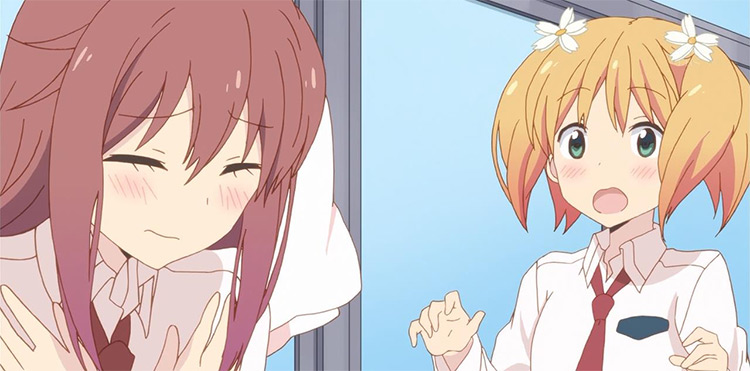
Sakura Trick features girls who kiss and aren’t afraid to show affection toward another.
Yes, it’s yuri. But it’s also not like most yuri anime.
Fanservice is abundant here but it never feels out of place.
The show also isn’t filled with hypersexualized characters and unearned drama.
In contrast, Sakura Trick is lighthearted. The girls here don’t behave like adults — they act and speak like the teenagers they are.
If you’re not a fan of yuri, you may not like this.
On the other hand, this may be the one yuri anime that even non-yuri fans may appreciate because of the amazing cast and solid animation.
29. Kimi to Boku. (You and Me.)
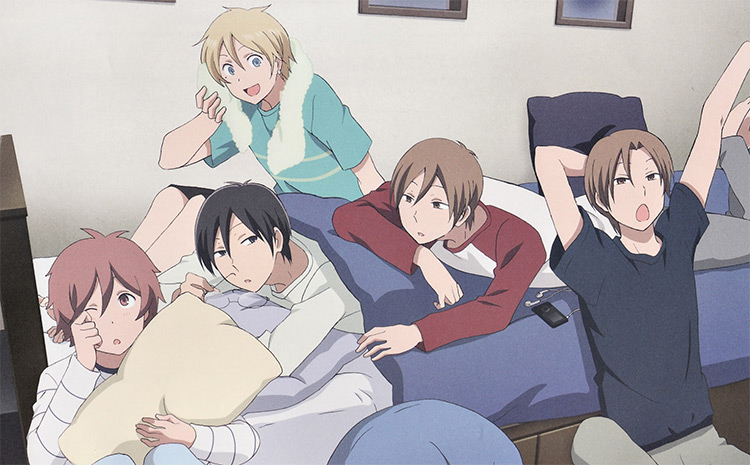
From a group of girls who love fellow girls, we move to a bunch of guys.
They don’t fall for each other but they’re clearly designed for BL enthusiasts — the boys look and behave like the ideal boyfriend.
But seriously, this is a great show about childhood friends (and one guy from Germany) spending their high school days together.
It’s charming, and you can’t help but wish to see them all grow together in college as well.
Once again, JC Staff has blessed SoL fans with a solid, multi-season series.
28. Silver Spoon
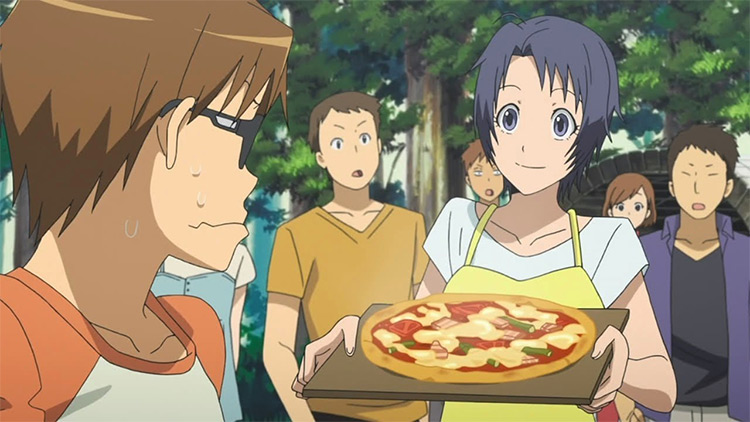
Whenever a thread about anime wishlists come up, someone will always say they want a second season of Silver Spoon — and I totally understand why.
It’s such a breath of fresh air from all the typical SoL hits running the same formula.
Yes, the MC is a high school student. But the setting isn’t the city: It’s the countryside.
And while he still goes to school, he’s forced to learn new ways of living.
Here, his supreme knowledge won’t help him in caring for the farm animals and maintaining farming equipment.
In a way it’s a show about cultural relativism. About seeing how and why others prioritize other things in life.
Plus the author of the source material is the same woman who created the iconic Fullmetal Alchemist.
27. Hachimitsu to Clover (Honey and Clover)
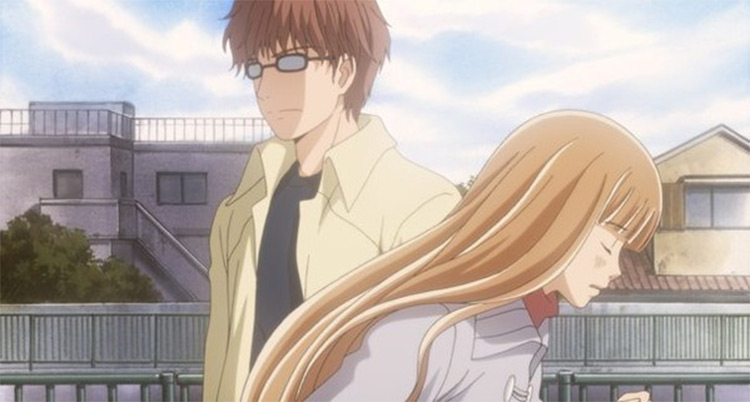
Shows like Honey and Clover make me feel happy and sad, with the latter being due to how it only has two seasons and I’m already so invested in the lives of these five individuals forging their own paths to adulthood.
The first season is good.
It introduces us to the gang and we witness how their lives are shaped not only by friendship and love but also the need to “find” oneself, which we all go through in our younger years.
But then the second season pops up and you realize that you’re watching a classic.
I suggest watching this once you’ve landed your first job after high school or college for the maximum feels.
26. Barakamon
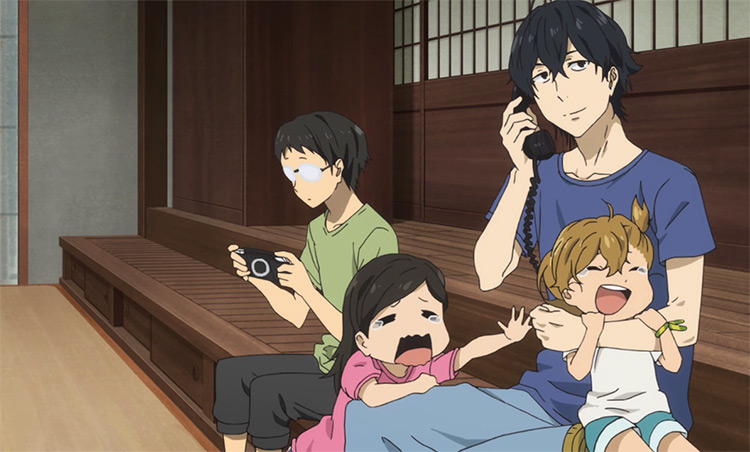
This is one of the first series I watched when I returned to seasonal anime — and I didn’t expect to like it this much.
Plus judging from its MAL rating, it seems that many other people have fallen in love with it.
At its core, Barakamon is about accepting failure and learning to move forward.
Seishuu Handa had all the attention to him and his mad calligraphy skills. But then he got the wrong kind of attention when he lost his cool.
Barakamon like a few other great SoL series, is situated in a rural setting.
Here, Seishuu hopes to focus and improve before going back to Tokyo.
But along the way he gets into hilarious scenarios with fujoshi, old people, and most especially a kid named Haru who has a well-known reaction face.
25. New Game!
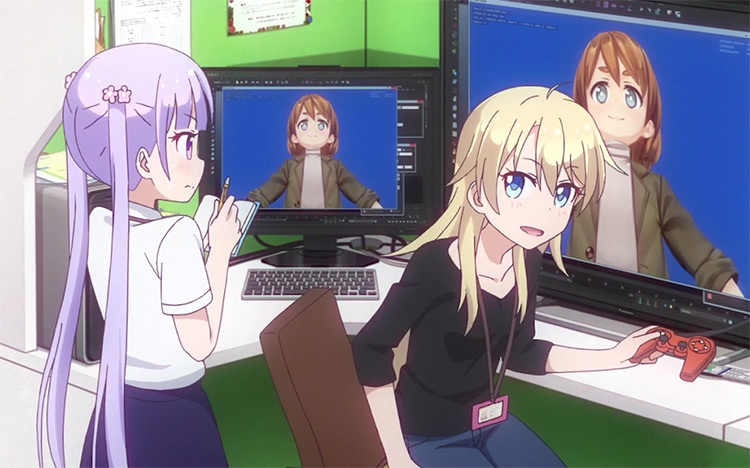
New Game! has two fantastic seasons, but even the first season was a surprisingly big hit.
But while it’s still a Doga Kobo SoL anime, it added another element that kept a specific part of the crowd glued to the screen: amazing fanservice animation.
You can go to anime forums or Google and search for Aoba and (especially) Hifumi GIFS and you’d find a ton of them.
Besides the eye candy, one can’t help but admire the passion of these girls in making their own video game.
And unlike the typical SoL series, these girls aren’t aimlessly spending their time.
Each episode gives us a peek into what they’ve already achieved and can achieve if they work harder.
24. Usagi Drop (Bunny Drop)
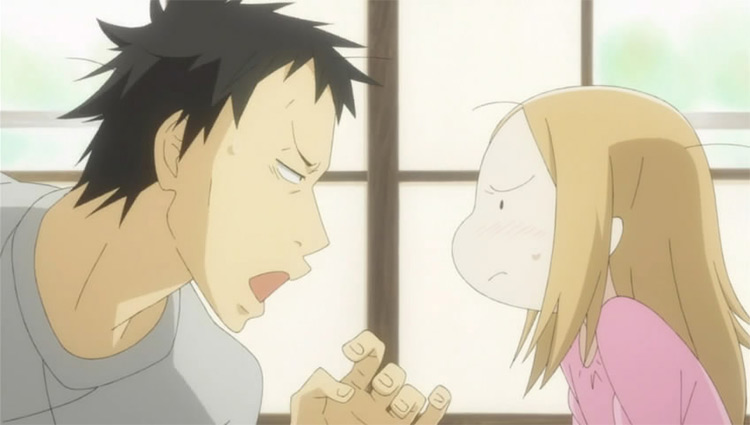
Along with Sweetness and Lightning and Poco’s Udon World, Usagi Drop completes the unintentional “guy-decides-to-take-care-of-a-kid-and-it-changes-his-life” trilogy.
Despite coming out five years earlier than the two to other titles, this 2011 series continues to be the high standard for this extremely specific SoL subgenre.
This is due to its superb source material and Production IG’s keen adaptation — Usagi Drop looks and sounds good to this day.
Just like other seinen, I implore you to catch (or rewatch) this when you’re at least in your 20s.
It’s an effective reminder of how adults can and do change for the better.
23. Grand Blue
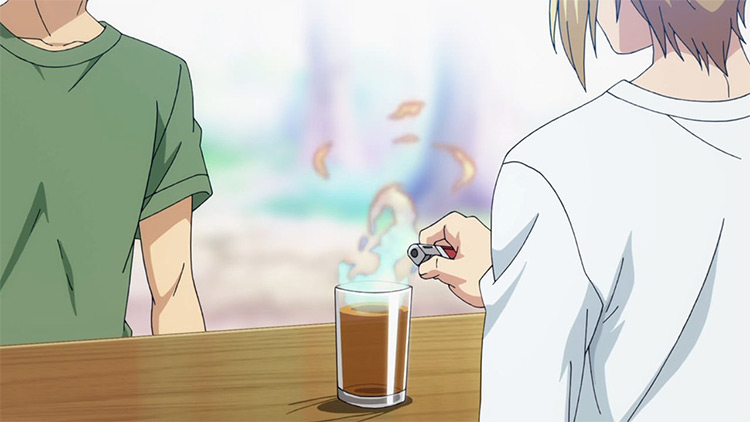
A recent release that has shot up to the upper half of the list is Grand Blue.
I expected this before its release — the manga has sold millions of copies and has a huge following.
But what makes this instantly appealing?
For one, the setting is refreshing.
Grand Blue is all about having fun with friends, school, and scuba diving with the Diving Club in the serene coastal town of Izu.
And apart from how the club isn’t just stuck in one room, Grand Blue is about college students, not just high school students.
22. ReLIFE
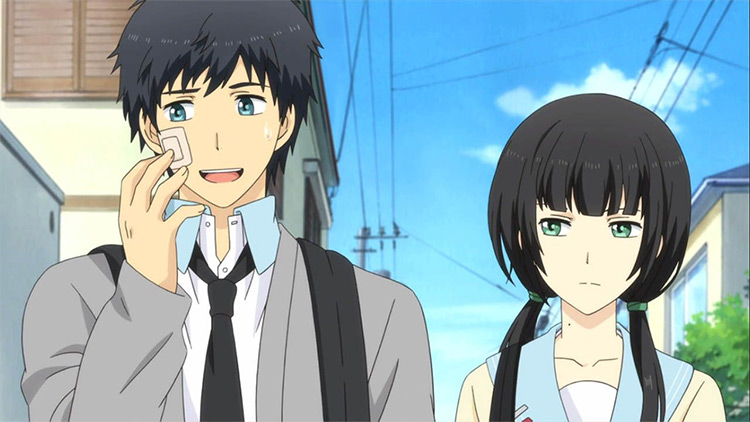
Like Tonari no Kaibutsu-kun, ReLIFE is one of the SoL shows I’ve been hoping would get a new season.
I’ve seen it at least twice already, and my friend says the manga’s already done and that the end was satisfying.
In contrast, the ReLIFE show ended with a huge cliffhanger, just when things were getting more exciting.
I saw it when I just got out of college, so the anime’s themes of regret and of helping everyone do better hit me hard.
Yes, TMS Entertainment blessed viewers with a four-episode OVA. But I want a return to the main story.
21. Hanasaku Iroha (Hanasaku Iroha: Blossoms for Tomorrow)
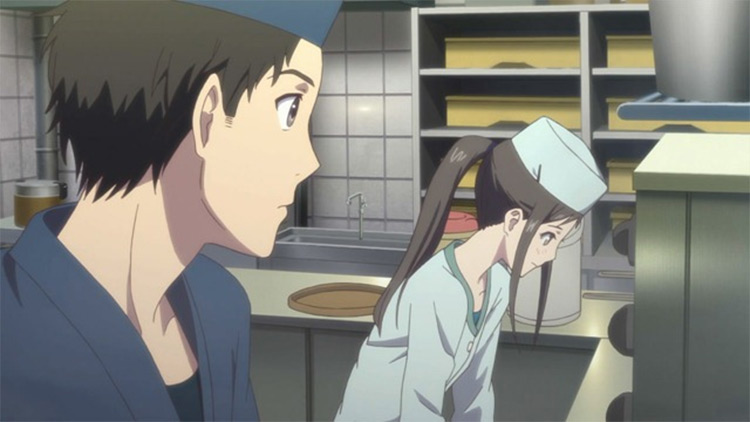
Hanasaku Iroha is the first entry of PA Works’ acclaimed “Working” series trilogy, which are all original anime — something I respect and wish we had more of.
Released in 2011, Hanasaku Iroha features the young Ohana Matsumae, whose Tokyo life was turned around when her mom left her.
Now she’s in the countryside and has to work in an inn owned by her grandmother, who actually isn’t fond of her.
Along the way Ohana meets new people and learns to cope with change — because everyone has to deal with change whether we like it or not.
20. Tanaka-kun wa Itsumo Kedaruge (Tanaka-kun is Always Listless)
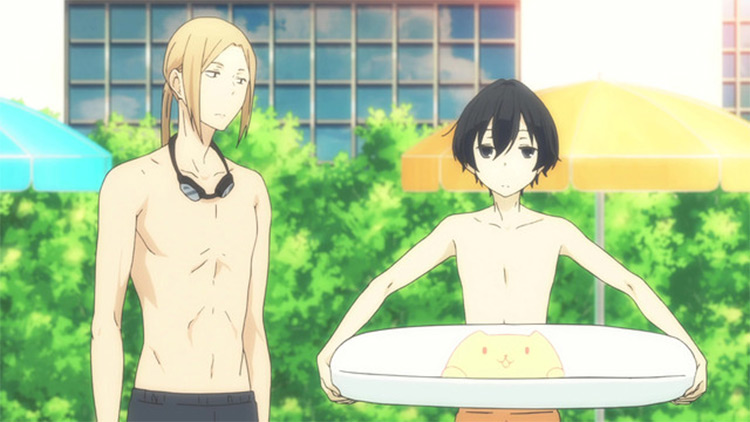
I gave Tanaka-kun is Always Listless a 10/10 score the first time I watched it — and I haven’t changed my mind since.
This is one of Siver Link’s best anime of all time, and I’m so grateful they took this project on.
Tanaka-kun is Always Listless sounds and looks clean.
And do you know what’s amazing?
The school is based on a real school in Hiroshima.
Tanaka is funny, and I love how he’s this sleepy, lazy dude who’s also adorable, slowly but surely realizing how his behavior affects other people.
The anime features this warm relaxing color palette, and I just feel at ease watching it.
And the rest of the cast, from Oota to Miyano and Shiraishi, have their own scene-stealing moments to boot.
19. Hyouka
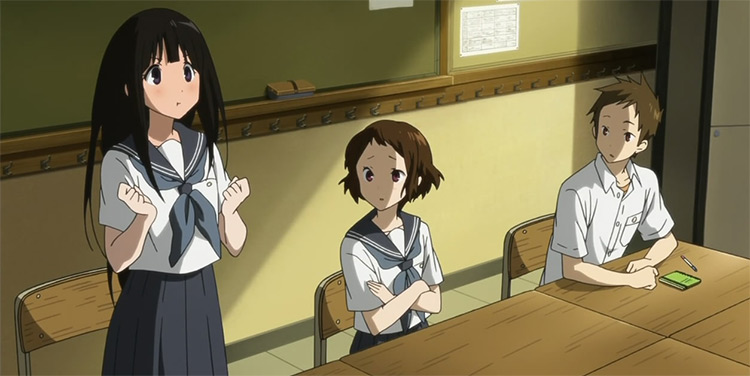
“I’m curious” is one of the most popular lines in anime, and that one’s from Hyouka.
It’s been eight years since release yet Hyouka remains one of the most consistently beautiful anime around, solidifying Kyoto Animation’s reputation.
Hyouka is unlike other SoL because of its mystery element.
Together with Chitanda, Mayaka, and Satoshi, Oreki is always solving something.
The mysteries don’t have to be profound. But they all give characters the opportunity to develop and interact.
Even if you don’t like SoL, you should watch Hyouka.
It’s a godsend that never fails from start to finish.
You also deserve to understand why so many people ship Oreki and Chitanda.
18. Sakura-sou no Pet na Kanojo (The Pet Girl of Sakurasou)
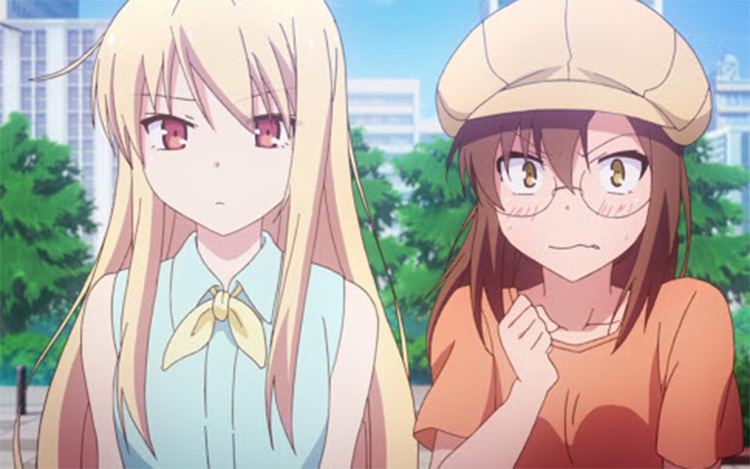
I’ve got another JC Staff entry for you.
To be fair, I didn’t love The Pet Girl of Sakurasou when it came out. And I even heard that source material’s ending would disappoint fans of the anime adaptation.
But I have to admit: The Pet Girl of Sakurasou has a solid bunch of characters that actually developed as the series went on.
I’m not a fan of Mashiro, but everyone else from Nanami to Ryuunosuke is great.
It has fanservice and typical romance and comedy. But it also has some genuinely serious moments that make them feel more human than most anime characters.
17. Tamako Market
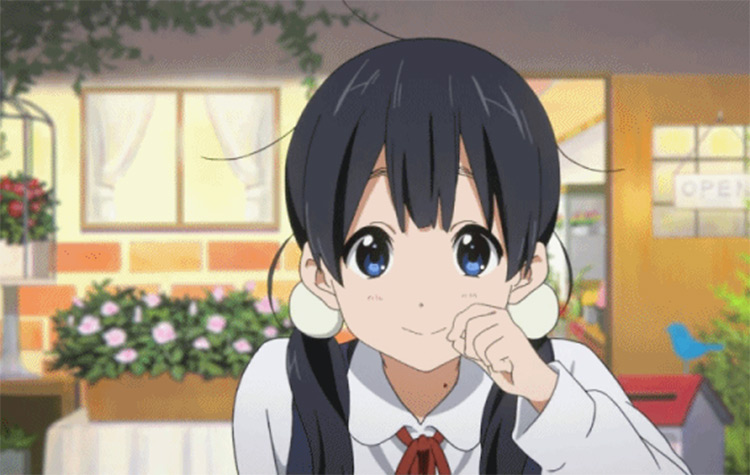
Like The Pet Girl of Sakurasou, I didn’t have a good impression of Tamako Market.
Despite being a huge fan of SoL, I initially found it to be too mundane.
But with a rewatch and a viewing of the Tamako Love Story movie, I can now fully recommend the show.
Like Hyouka, Tamako Market is a showcase of the “modern” Kyoto Animation.
It’s visually detailed and sports a huge set of supporting characters with their own unique looks and personalities.
This isn’t the best KyoAni SoL, but it’s a solid entry — and there’s even a bride-seeking talking bird.
16. Danshi Koukousei no Nichijou (Daily Lives of High School Boys)
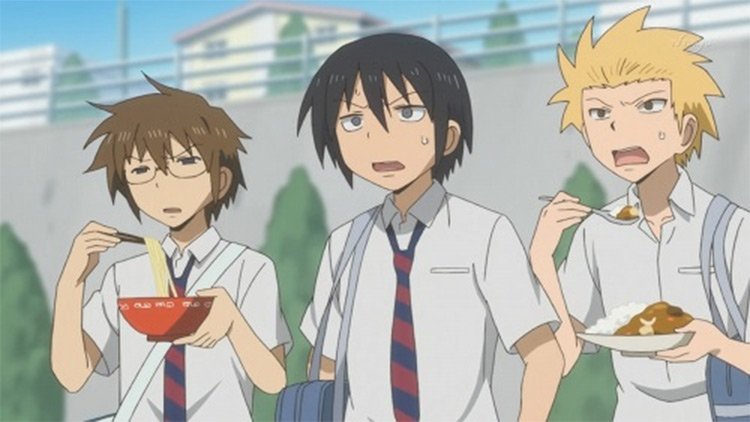
This is, without a doubt, one of the funniest anime of all time.
Daily Lives of High School Boys can’t hold a candle to KyoAni in terms of animation, but its comedic value is off the charts.
I still remember the first episode after all these years: Hidenori, Yoshitake, and Tadakuni telling spooky stories and wearing girls’ clothes — including bras.
And I just know everyone loves the scenes with the literature girl on the riverbank.
For a series with just 12 episodes, it feels like there were way more. Especially because it even dedicates a mini-series for a trio of girls.
15. Wotaku ni Koi wa Muzukashii (Wotakoi: Love is Hard for Otaku)
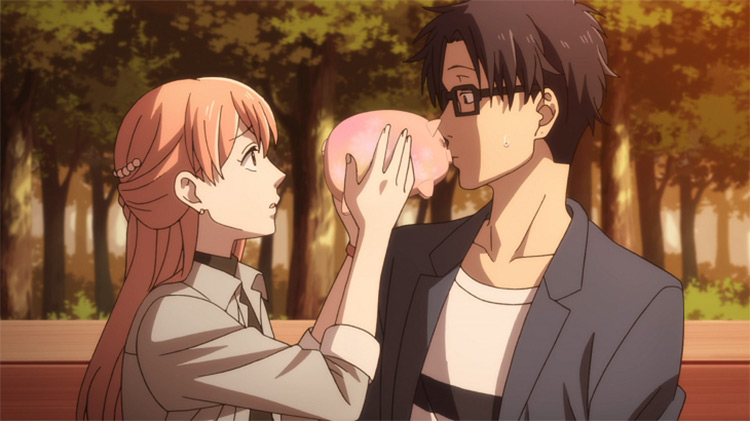
I’ve mentioned SoL shows featuring high school and college students, urban and rural settings, and a variety of clubs.
What about a focus on office workers?
That’s what Wotakoi brings to the genre (and they don’t look like 10-year-old girls like in New Game).
Wotakoi is the effective office romance I’ve always thought should exist in anime.
It doesn’t have any fanservice because it knows its character dynamics and storytelling are more than enough.
And despite the office setting, this is far from dull.
Like any real adult, the cast members aren’t afraid to look goofy from time to time.
Thanks to the relatively small number of characters, viewers can expect everyone to have a memorable appearance.
14. Working!! (Wagnaria!!)
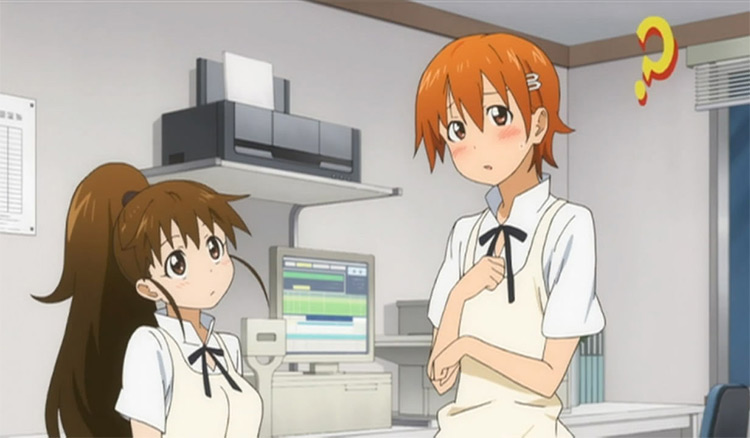
Right after Wotakoi is another series that involves workers. So much so that it’s called Working!!
With three seasons, an alternative setting, and a 49-minute special, the Working!! franchise has caught my attention for years.
Who knew that the employees of the Wagnaria family restaurant would be this interesting with each passing episode?
If you love SoL but don’t mind a bit of romance and even drama, do check this out.
And don’t mind the number of episodes — this is better watched one or two episodes a day.
13. Kobayashi-san Chi no Maid Dragon (Miss Kobayashi’s Dragon Maid)
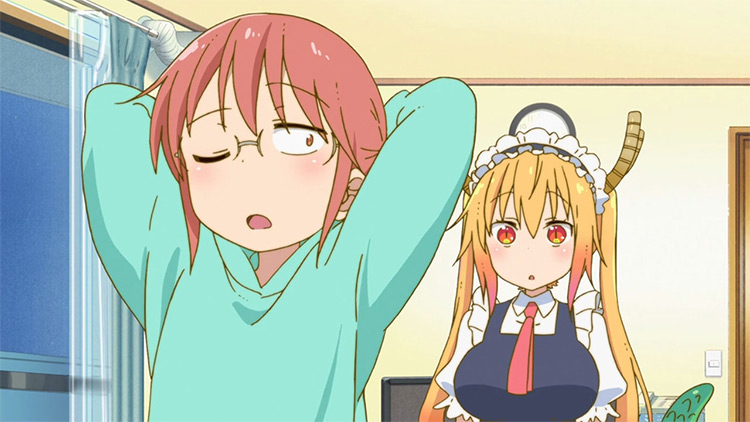
As much as I love shows like Hyouka and Free!, I also admire when KyoAni goes for a more cartoonish design.
Luckily the studio did that in their adaptation of Miss Kobayashi’s Dragon Maid.
This is one of the finest fantasy SoL shows you’ll ever see.
It can go from epic (whenever the women turn into giant dragons and fight it out) and just plain adorable (mostly because of Kanna).
Plus, Miss Kobayashi’s Dragon Maid has an infectious OP and also has the acclaimed Naoko Yamada as one of its episode directors.
12. Natsume Yuujinchou (Natsume’s Book of Friends)
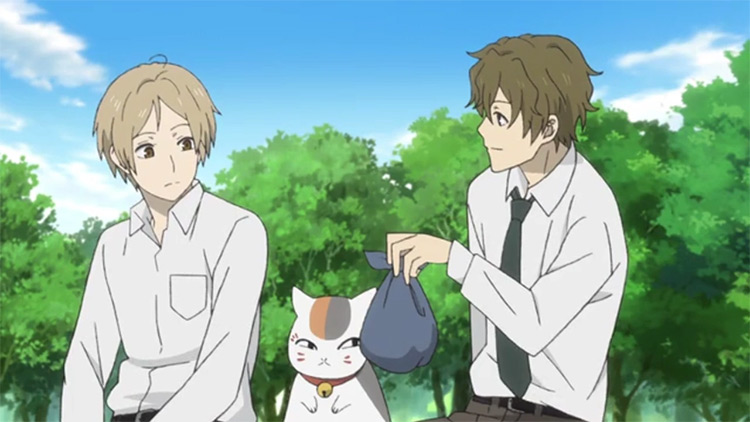
With six seasons and a movie, Natsumi Yuujinchou is that rare gem in anime: It got enough attention to warrant more episodes, and critics and fans alike gave it great reviews.
So what makes Natsume’s Book of Friends such a compelling watch?
For one, it’s a supernatural SoL — Natsume and his pal (a feline spirit named Madara) go about their daily lives looking for spirits to free.
Each of these spirits or youkai has a distinct personality and rich story to tell.
Combine that with a relaxing countryside setting and an overall comforting atmosphere for max comfy points.
You’ll be looking for an episode right before you go to sleep.
11. Ookami Kodomo no Ame to Yuki (Wolf Children)
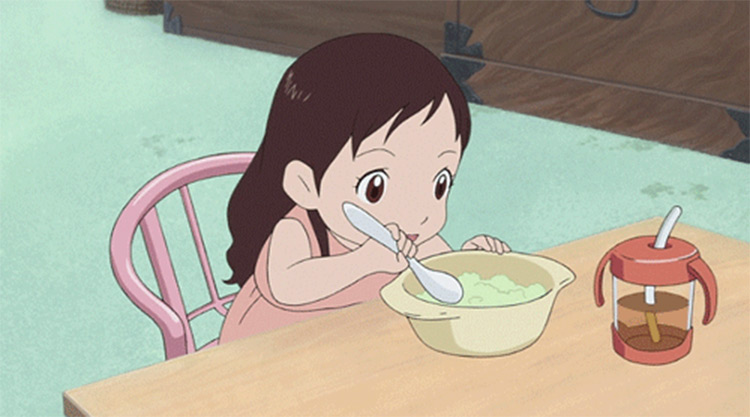
This is the highest-ranking SoL movie on my list.
Yes, other titles here have movies too.
But this is the only one that isn’t primarily a series that just happens to have a compilation or sequel film.
To be honest, I think the very nature of slice of life is why my list is dominated by series.
SoL is about witnessing the seemingly trivial moments of everyday life, and series have a structure that makes me feel that I’ve known the characters for many months or even years.
With that in mind, the fact that Wolf Children nearly made it to the top 10 is a testament to its charm: excellent cinematography, Mamoru Hosoda’s masterful direction, sometimes painful, and oh-so full of heart.
10. Hinamatsuri
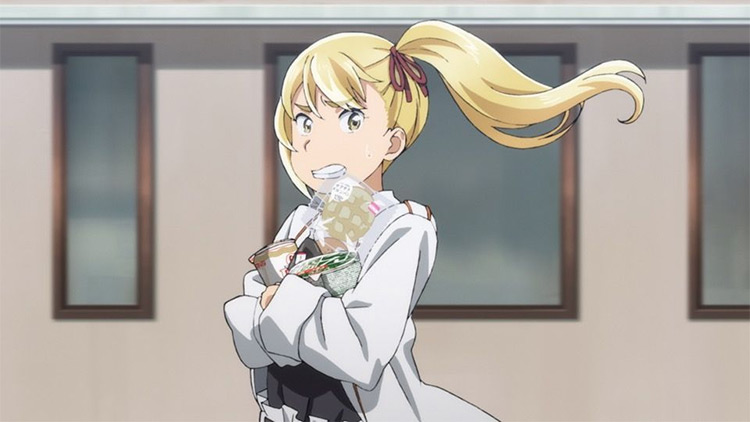
I started watching Hinamatsuri when I had spare time in 2019, a year after its release.
I didn’t think it would have alien girls learning the ways of human life, but it was a wild, hilarious ride I won’t forget.
And look, I think that the braggadocious yet kind gangster Nita has solid moments with Hina.
But my favorites in Hinamatsuri are undoubtedly Hitomi and Anzu.
Hitomi, for some reason, becomes a bartender and realizes the troubles of employment and financial independence.
It’s amusing to see a studious student like her suddenly thrown into the adult world.
Then there’s Anzu, who has the best arc in Hinamatsuri.
Through her eyes, viewers realize just how hard it is for the poor to live and survive, and how people shouldn’t take things for granted.
9. The Melancholy of Haruhi Suzumiya
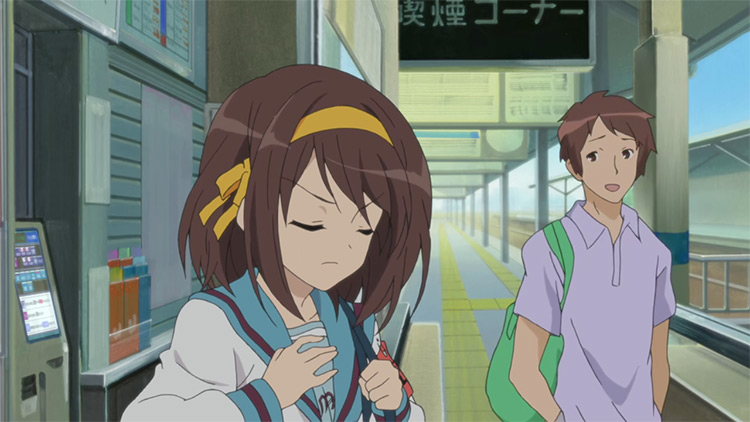
This is the third final KyoAni entry on my list, which is indicative of how the studio has mastered the art of slice of life.
Is it based around a club? Yes.
Is it like other club-based series? Not really.
First, The Melancholy of Haruhi Suzumiya doesn’t show events in chronological order.
It’s completely normal for viewers to be confused, but also entertained once they connect the pieces.
Second, the show has a ton of monologues courtesy of Kyon.
There’s a huge element here that I won’t spoil, but let’s just say it makes everything all the more intriguing.
Not everyone likes the infamous Endless Eight Arc of S2, but both S1 and the movie The Disappearance of Haruhi Suzumiya are downright classics.
And just like Lucky Star, The Melancholy of Haruhi Suzumiya had an OP with a viral dance sequence.
8. Uchuu Kyoudai (Space Brothers)
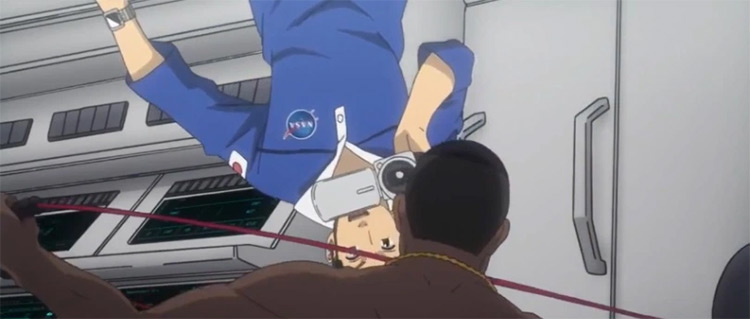
With a whopping 99 episodes, Space Brothers is the longest series in my list.
And there’s no other show like it.
I don’t even know how its producers managed to keep it going for so long.
Granted, the animation isn’t amazing.
You can even say it’s average, or subpar at times. But this isn’t a huge obstacle to get you hooked — the characters are 100% worth investing in.
Think of it: These are two brothers who dreamed of becoming astronauts.
One of them grew up and forgot about it, while the other is already on his way. Space Brothers, then, is about reviving one’s dreams and trying your best in achieving them.
Plus it’s so much more realistic in its approach to space and the near future (it’s set in 2025) than most anime.
7. Yuru Camp (Laid-Back Camp)
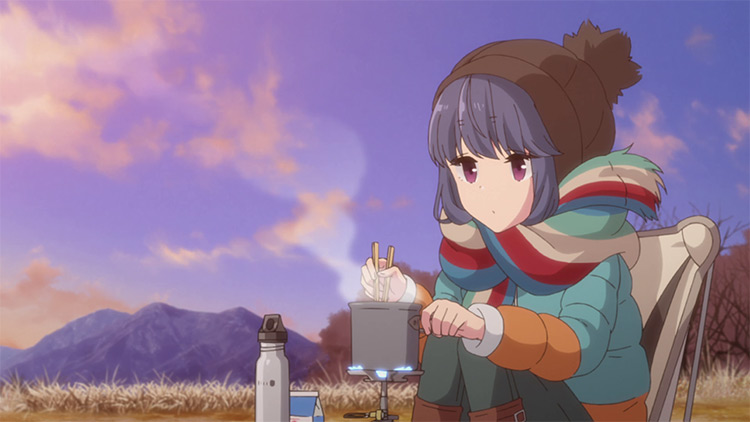
Is it proof of recency bias that I included two entries from 2018 in my highest 10 picks?
Perhaps. But how could I not include Hinamatsuri and Yuru Camp when they went all out in terms of character, story, and mood?
As its name implies, Laid-back Camp goes away from any big drama or the stress of the urban jungle, choosing to spend more time in nature.
It’s so comforting, even when the girls just eat noodles or stay warm by the campfire.
I also commend C-Station for doing such an awesome job with the coloring and the backgrounds.
They all help evoke an inviting, relaxing feeling every step of the way.
6. Shirobako
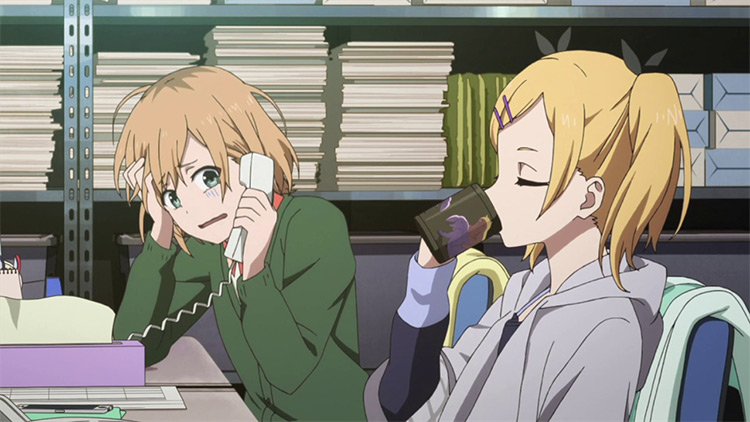
Shirobako is the second entry of the PA Works “Working Girls” trilogy, with the most recent being 2017’s Sakura Quest, which sadly didn’t make it to my list.
I wasn’t hooked with the first episode.
Actually I was overwhelmed with the sheer number of people.
But the amazing thing about Shirobako is that it made everything work. I literally shed a tear by the end.
And if you want to know how anime studios work, watch this.
Consider it a love letter to the people who make the shows we love.
5. Aria the Animation
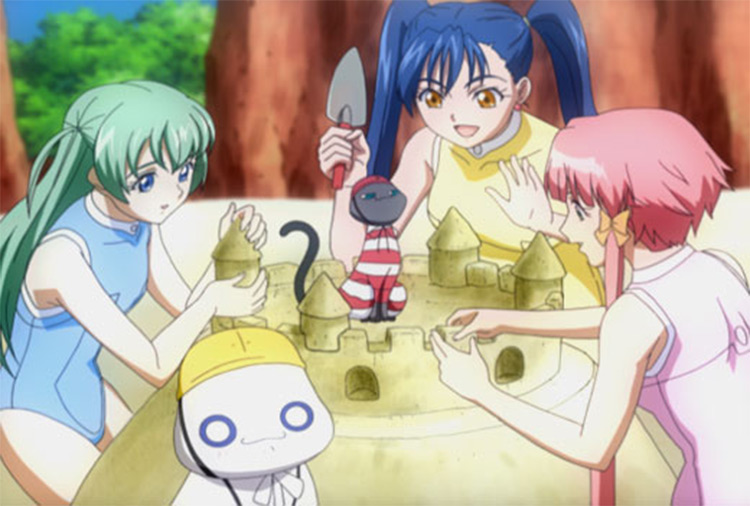
Aria the Animation has three distinct seasons and is one of the most endearing anime of the 2000s.
Like any classic SoL series, it features extremely likable characters, beautiful backgrounds, and good vibes — and yet it’s set in Mars hundreds of years into the future.
Despite being so far away in temporal and spatial terms, Aria the Animation is still human at its core.
It’s about the relationships we develop with the people around us, of how nice it is to make memories with them.
Don’t binge this series. Instead, save one episode for each day.
Let it make you reflect on and appreciate your own life while and after viewing.
4. Mushishi
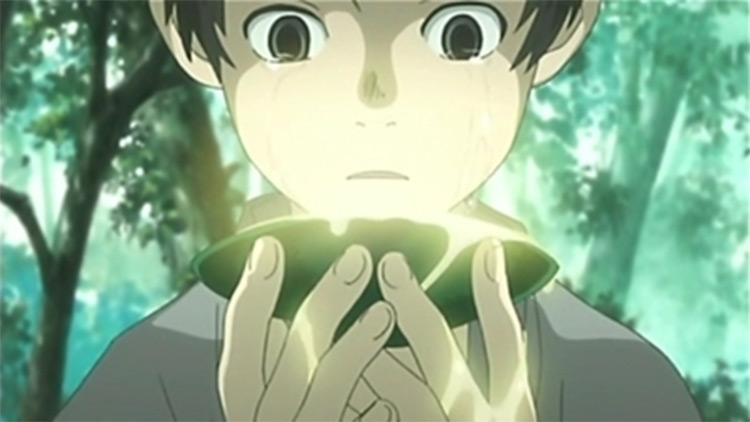
Is it a bad thing when people fall asleep while watching anime?
If it’s Mushishi, it’s a compliment.
For so many people over the years, they’ve attested to the ultra-soothing effect of this supernatural franchise.
It’s a miracle that Mushishi got new content after its first season back in 2005.
But anyone interested in this anime must remember that it’s not all relaxation and nature backgrounds here.
Mushishi is philosophical in a sense, looking into the meaning of life and existence.
It can make you sad or hopeless at times, but Ginko and the many mushi creatures should deepen your understanding of life for the better in the long run.
3. Nichijou (My Ordinary Life)
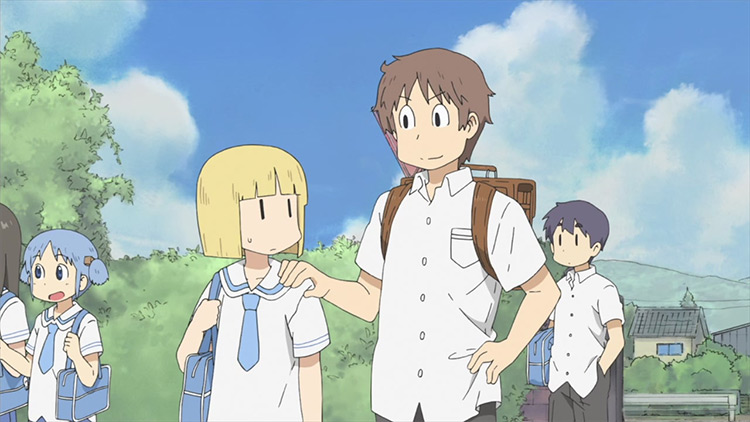
This is my bronze medalist — and I’m kind of hurt saying that.
Nichijou is near and dear to my heart, but the two final entries are just as special.
I’ve seen Nichijou at least three times and I still think it’s got one of the best comedy scenes ever.
I’ll never forget how Mio threw down a goat, or Yuuko’s reaction to getting bitten in the hand by a dog.
Furthermore, Nichijou boasts solid OP and ED tracks, and each character (whether main or supporting) manages to leave an impression.
It’s whacky, outrageous, and just a fine celebration of ordinary life.
2. Non Non Biyori
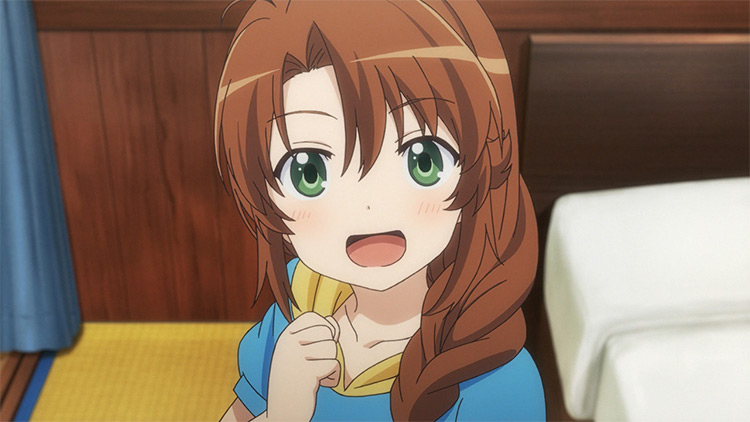
Non Non Biyori is my favorite anime set in the countryside.
The first scene alone sets the entire mood of the series, with shots of the natural surroundings, accompanied by soothing instrumental music.
For me, there’s no cuter or more adorable main character in anime than Renge.
She’s exactly how a child should act.
Now she can be stubborn or have too many questions, but she’s honest with herself and everyone around.
My favorite Non Non Biyori episode is when she meets another kid who’s just around her age.
It was the first time she was with someone as young as her, and what happened by the end was a stunning show of childlike emotion, all without words or dramatic music.
Anyway, Non Non Biyori has two seasons and a movie. And they are all absolutely worth watching.
Silver Link did a consistently amazing job with this show.
1. K-On!
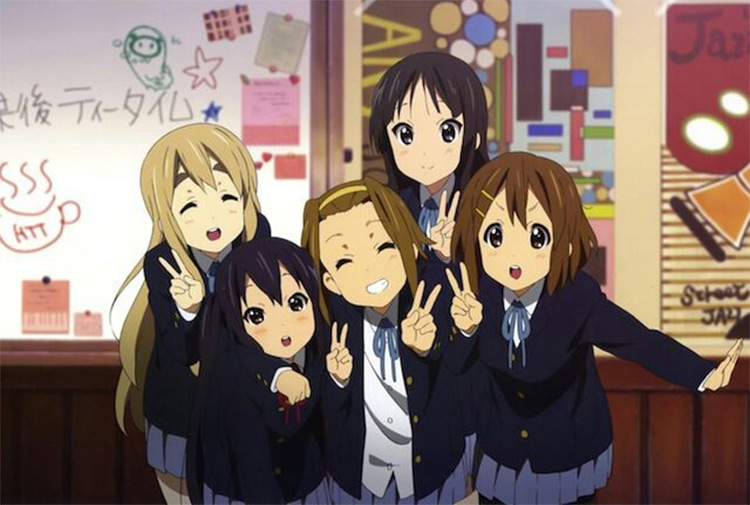
Was there any other series that could hold the top spot?
This is Naoko Yamada’s first directorial project, before she handled other beloved KyoAnime anime like Liz and the Blue Bird, Tamako Market, Tamako Love Story, and Love, Chunibyo & Other Delusions.
Yes, the main characters are all part of a club — a music club, to be specific.
But while K-On! does have music, more of its time is spent on just being together, laughing and having tea and cake.
Thanks to Yamada’s vision and her team’s superior technical skills, K-On! never looks or feels mundane.
The animation is fluid, never stiff, and it’s a masterclass in using body and facial movements to portray emotions.
K-On! didn’t need to show faces all the time.
Sometimes the way their legs moved and how the girls walked was more than enough to show character.
What else?
The lighting, particularly in the movie, is brilliant.
There’s one scene of them in the car on the road at night, with the lights outside flashing by quickly.
It’s such a relatable moment, one that many of us have experienced but is hard to describe in words — and so K-On! did it through animation.
I hope you have a wonderful time with Yui, Mio, and the rest of the Light Music Club.
